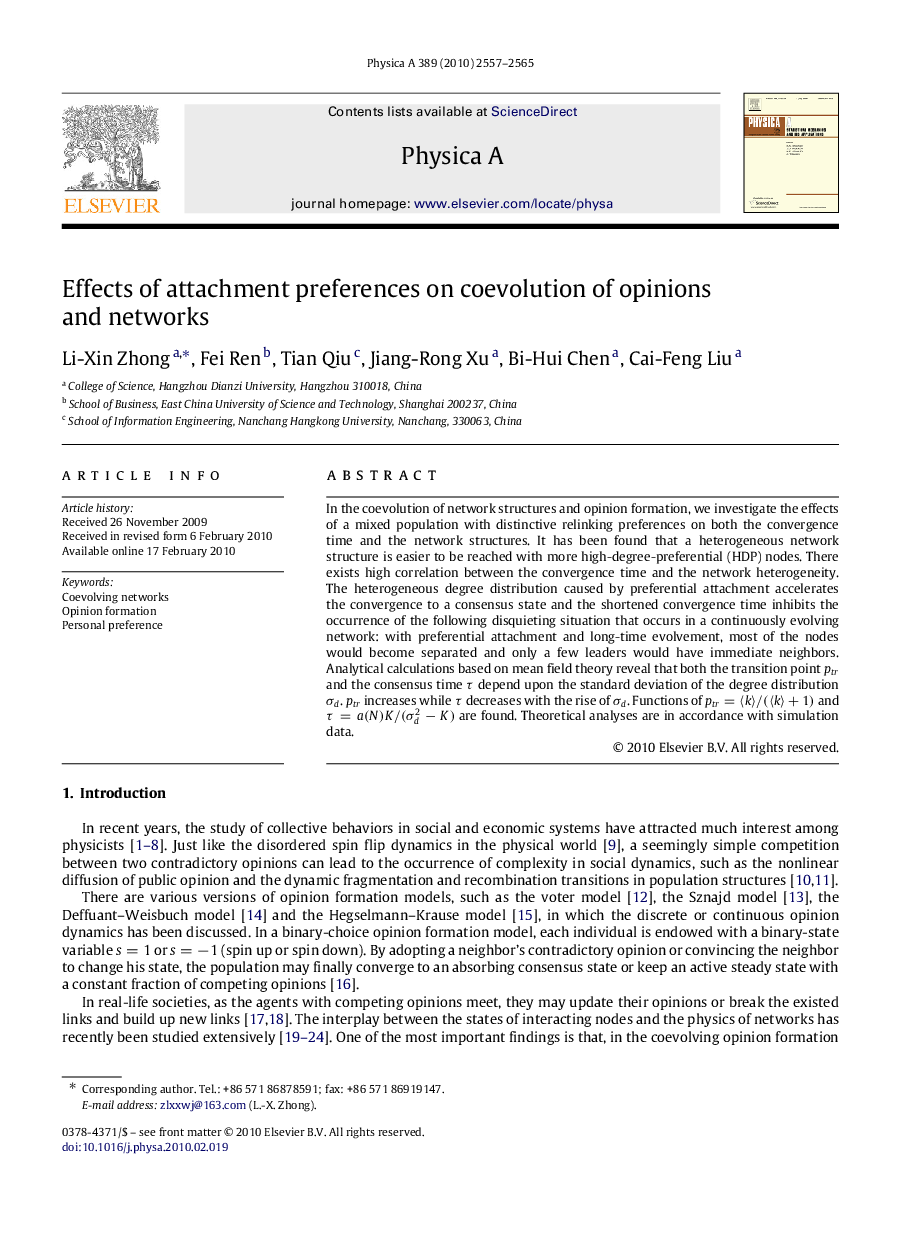| Article ID | Journal | Published Year | Pages | File Type |
|---|---|---|---|---|
| 974215 | Physica A: Statistical Mechanics and its Applications | 2010 | 9 Pages |
In the coevolution of network structures and opinion formation, we investigate the effects of a mixed population with distinctive relinking preferences on both the convergence time and the network structures. It has been found that a heterogeneous network structure is easier to be reached with more high-degree-preferential (HDP) nodes. There exists high correlation between the convergence time and the network heterogeneity. The heterogeneous degree distribution caused by preferential attachment accelerates the convergence to a consensus state and the shortened convergence time inhibits the occurrence of the following disquieting situation that occurs in a continuously evolving network: with preferential attachment and long-time evolvement, most of the nodes would become separated and only a few leaders would have immediate neighbors. Analytical calculations based on mean field theory reveal that both the transition point ptrptr and the consensus time ττ depend upon the standard deviation of the degree distribution σdσd. ptrptr increases while ττ decreases with the rise of σdσd. Functions of ptr=〈k〉/(〈k〉+1)ptr=〈k〉/(〈k〉+1) and τ=a(N)K/(σd2−K) are found. Theoretical analyses are in accordance with simulation data.
